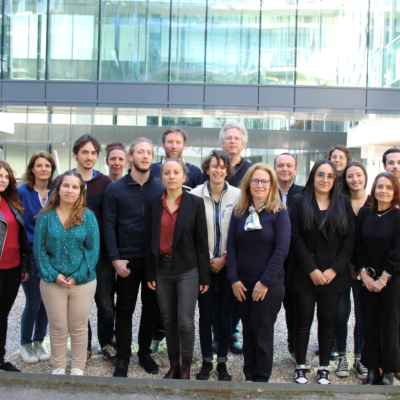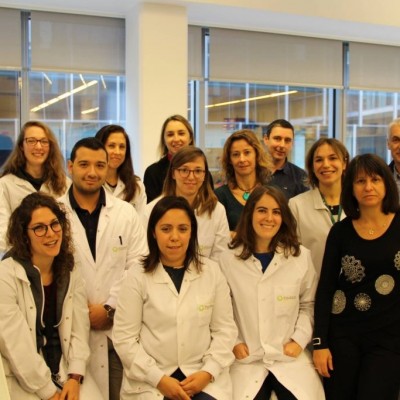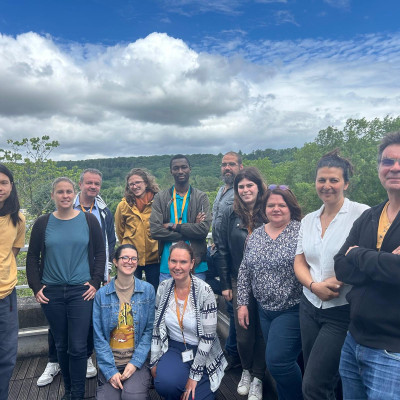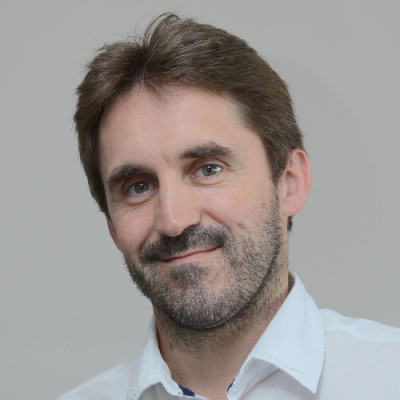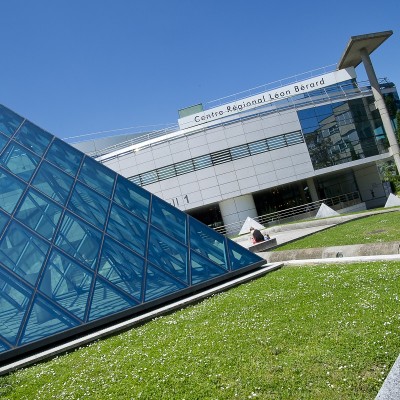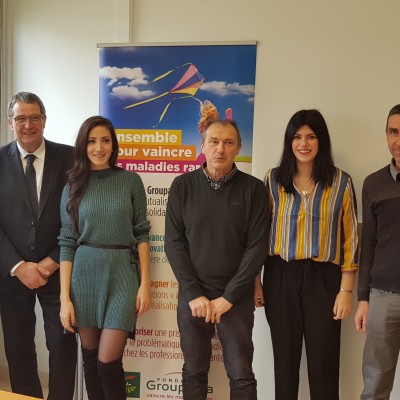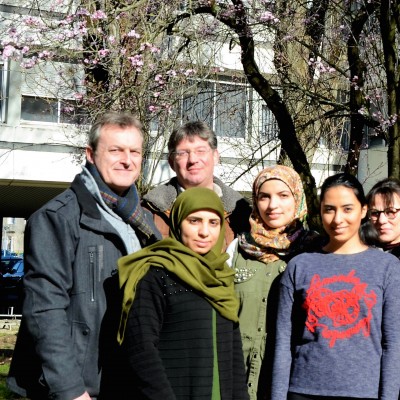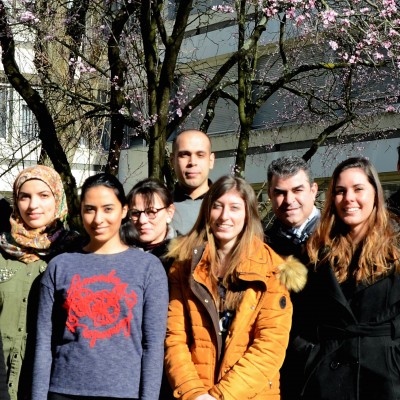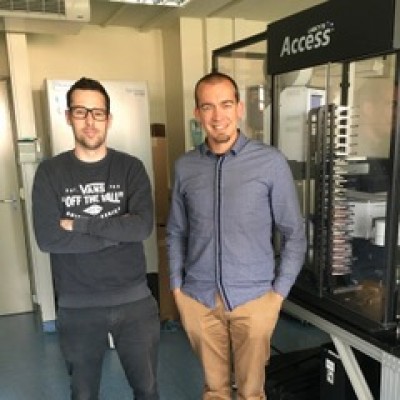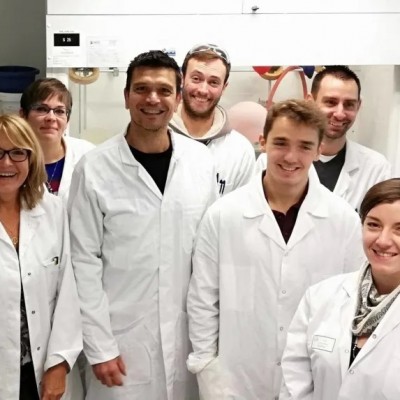VIRTU THERAPEUTICS (Nice)
Eva pour la vie & Grandir sans cancer have, through their financial commitment, significantly accelerated the launch of a drug start-up linked to the desire to develop an innovative small molecule for the treatment of glioblastoma, a very aggressive and generally incurable brain tumor in adults and children. The leaders of this start-up explain their work, perspectives and the importance of promoting the development of small companies focused on rare cancers, particularly the most aggressive pediatric cancers ...
Dr. Thierry Virolle, you are Director of Research at INSERM. Your work focuses in particular on glioblastomas, an aggressive cancer that can affect adults as well as children. Can you tell us more about your motivations for working on pediatric brain tumors?
For about fifteen years, my team has been looking for a new strategy to eradicate the cancer stem cells that cause glioblastomas and their recurrences by depriving them of their tumor potential. In order to be as close as possible to the original tumor, we work with patient cells. In fact, our efforts have focused on adult glioblastomas operated on in the neurosurgery department of Nice, in conjunction with Dr. Almairac. At the end of 2022, we obtained DIPG cells in collaboration with Dr. Junier for a project that was not funded. Despite this, we have begun work that shows that the drug candidate that we developed on adult GB could be effective against childhood GB. My colleagues and I are extremely mobilized to provide proof of the effectiveness of this treatment in an in vivo model of DIPG. Without mentioning the pain of families that is difficult to understand when one does not experience the loss of a child in one's own flesh, the death of a child suffering from cancer is an unacceptable social fact that could be avoided if more financial resources were dedicated to the study of pediatric cancers.
Dr. Laurent TURCHI Following the development by your research team of an innovative small molecule for the treatment of glioblastoma, you decided to found Virtu Therapeutics. Can you tell us more about this initiative and the main difficulties encountered?
Indeed, as Thierry just mentioned, we have developed an innovative therapeutic strategy consisting of trapping the cancer stem cells at the origin of Glioblastomas and their recurrences in a state where they have become incapable of contributing to the progression of the tumor. Unlike cytotoxic chemo and radiotherapies, which select resistant tumor cells at the origin of recurrences, our differentiating strategy also makes GSCs sensitive to treatments. These results obtained on patient cells in culture and in an in vivo model, encouraged us to continue the development of our drug candidate in a business creation project. To do this, we contacted two professionals from the health industry and formed a small team to start the work. Our priority objective is to bring this drug candidate and our therapeutic strategy to the clinic in adults and children. Our main difficulty is that Glioblastoma is a rare cancer, pediatric forms are even rarer, and the investors we met encouraged us to seek efficacy in more profitable indications... predicting that without this we would have difficulty obtaining financing.
What impact do you hope will be had in the long term for children affected by brain tumors?
The results we have obtained in glioblastoma models give hope of sustainably stopping tumor progression in children with DIPG. Our therapeutic approach reduces the resistance of tumor cells to treatment and prevents the selection of more aggressive cells responsible for recurrences. Thus, we should witness a spontaneous decrease in tumor size in treatment alone or in combination with cytotoxic therapy. At the current stage of development, our drug candidate would allow an increase in the life expectancy of children and adults with glioblastoma but also an improvement in their quality of life.
Mr Lionel Menou, after several years in a large pharmaceutical group and the marketing of a biotherapy developed by a start-up, you joined the Virtu Therapeutic project and now chair the company. Is the support of the Grandir Sans Cancer federation and the Eva pour la vie association, to enable the launch of this drug start-up, important? Can you explain why?
When Laurent Turchi contacted me in early 2022, I quickly realized the quality of the work undertaken, and the prospects for therapeutic applications of this drug candidate for the treatment of pediatric and adult Glioblastomas. With Patrice Cornillon, a former executive in the medical diagnostics industry, we provided the necessary framework for the creation of the start-up. Our work and that of the researchers have been recognized by many local and national partners including the PACA EST incubator, the University of Nice and the Public Investment Bank (BFTE Aid). The quality of our project allowed us to be winners of the National Innovation Competition (iLab Aid) in 2023. Paradoxically, the payment of institutional subsidies (BFTE, ilab) is subject to the company's ability to co-finance part of the project. This is completely normal, creating a start-up is a big risk, but our stage of development and our medical indication (adult and pediatric glioblastoma) have not yet allowed us to attract investment funds or an industrial partner, the co-financing had to come from the co-founders (which was done as much as possible, knowing also that we do not pay ourselves) and from civil society.
We therefore approached the Grandir sans Cancer federation and the Eva pour la Vie association. Without their financial support, Virtu Therapeutics, created in December 2023, would not have been able to receive institutional aid and therefore start developing the drug candidate. Their contribution and through them the contribution of families affected by pediatric cancers will have been fundamental for our society.
Thanks to the involvement of several MPs and the support of the Minister of Research Frédérique Vidal, with Grandir Sans Cancer and Eva pour la vie, €5 million/year has been allocated to basic research on childhood cancers since the end of 2018. While welcoming this progress, these associations would like this funding to be increased to €20 million/year and extended to pediatric oncology clinical research. Similarly, they are campaigning for the government to promote the development of pediatric drug start-ups against childhood cancers and serious illnesses through earmarked funding. What do you think of their proposals and what could this bring to children with cancer?
Virtu Therapeutics: Advancing knowledge on pediatric cancers and finding treatments adapted to situations that are often different from those of adults should be much more than a priority and protected scientific axis. It should be a political project with the prospect of saving every child sick with cancer. This research would also benefit adults. At present, it is exactly the opposite situation. Although efforts have been made in the last two years to finance research on pediatric tumors, thanks to the vitality of your fight, we are looking for the greatest number because this is where the greatest benefits are made in terms of public health but also and above all the safest financial returns. Quality research requires qualitative means (level of training of scientists, doctors, etc.) but also quantitative means. For this reason, we subscribe to the proposals made by the associations to our parliamentarians and the government.


